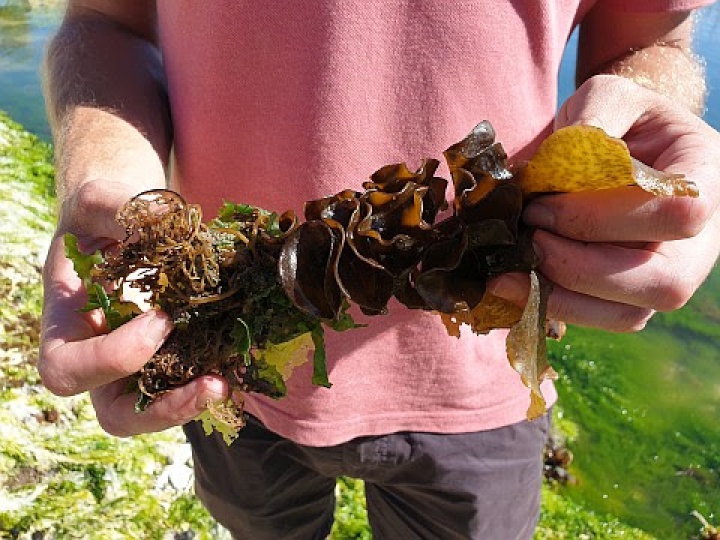NZ School Kids Learning Why Seaweed Helps Our Economy And Nature
Kiwi school kids are about to learn how scientists know seaweed is an amazing marine resource set to help local communities — and the ocean — recover from COVID-19 lockdowns and environmental decline.

As part of Seaweek (6-14 March 2021), Sustainable Seas National Science Challenge, LEARNZ and the Cawthron Institute are hosting a virtual field trip, helping Kiwi primary and intermediate school children discover rimurimu/seaweed’s many financial, environmental and social benefits.
Because the field trip is virtual, if school kids are in lockdown, they can participate from the comfort of their own home.
Focusing on why rimurimu is a taonga (treasure) that can help both people and the ocean, the trip launches on 8 March 2021. The trip lets students from all over Aotearoa ‘travel’ to Kaikōura, Havelock and Nelson to connect with marine researchers Rob Major (Sustainable Seas Challenge/Cawthron), Tom Wheeler (Cawthron) and Te Rūnanga o Kaikōura kaumātua, Brett Cowan. Brett will share his mātauranga (knowledge) about the cultural significance of rimurapa/bull kelp and the many ways it is used by Māori. As part of the trip, children can quiz Rob in a live ‘ask the expert’ Q&A about seaweed aquaculture on Zoom on 10 and 11 March.
“We know from teachers’ feedback our previous Seaweek fieldtrips got children and their whānau thinking about all sorts of issues. The fieldtrips have been a great way to share science and mātauranga Māori (indigenous knowledge) about the moana,” says Dr Julie Hall, Sustainable Seas National Science Challenge Director. “This year’s trip focuses on an extremely important issue – how seaweed aquaculture has the potential support sustainable economic and social development, as well as give back to the ocean to restore ecosystem health.”
There are 850 seaweed species in New Zealand, a third of which are endemic (found nowhere else in the world). Seaweed aquaculture is the world’s fastest growing primary industry.
“Rimurimu is an amazing resource, used by many cultures, in many ways — including as food, fertilisers and beauty creams,” says Rob, who is part of the Sustainable Seas Building a seaweed sector project team and a marine scientist at Cawthron. “There are other exciting potential uses that could help combat climate change. For example, we’re looking into using seaweed to reduce cattle methane emissions. And seaweed can be farmed in a way that helps restore marine environments and improve marine ecosystem health, to benefit nature as well as society.”


 Natural Hazards Commission: Hub Launched To Empower Architects And Engineers To Build Above Code
Natural Hazards Commission: Hub Launched To Empower Architects And Engineers To Build Above Code Harmony Energy: Ceremony Heralds Start Of Construction On New Zealand’s Largest Solar Farm Project
Harmony Energy: Ceremony Heralds Start Of Construction On New Zealand’s Largest Solar Farm Project Stats NZ: Annual Number Of Home Consents Down 7.4 Percent
Stats NZ: Annual Number Of Home Consents Down 7.4 Percent Plains Media: Plains FM Announces Name Change After 37 Years
Plains Media: Plains FM Announces Name Change After 37 Years NIWA: Flooding From Underneath - New Tool Reveals Shallow Groundwater Elevations
NIWA: Flooding From Underneath - New Tool Reveals Shallow Groundwater Elevations Commerce Commission: Commission Concludes Auckland Airport Over-charging By $190 Million
Commerce Commission: Commission Concludes Auckland Airport Over-charging By $190 Million



